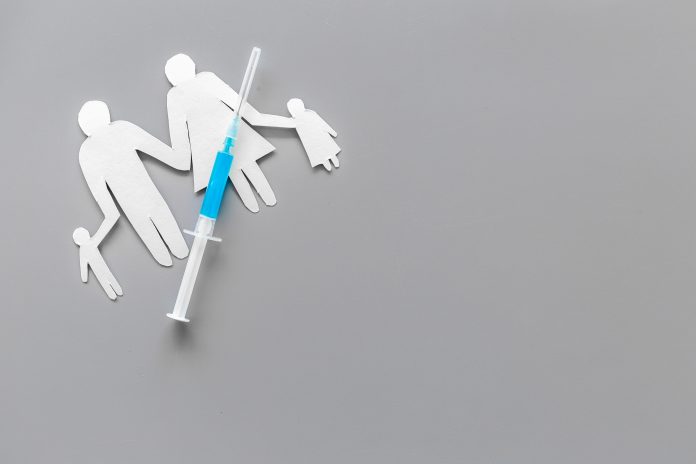The changing advice around the AstraZeneca vaccine and months of zero Covid cases in the Australian community has led to one of Australia’s biggest challenges: how to get enough people to get vaccinated.
Part of the reason for the slow uptake has been supply, but there is no doubt the AstraZeneca hiccup has fuelled the Government’s worst nightmare – vaccine hesitancy.
Professor Ben Newell and Dr Kate Faasse from UNSW Science’s School of Psychology have been advising the Government on vaccine uptake.
Professor Newell says many studies have looked at how to influence vaccine uptake, but one of the most influential behavioural science models is from the World Health Organisation.
“They talk about the three Cs: convenience, confidence and complacency, but a subsequent study has added a fourth C: calculation,” Professor Newell says.
“The idea is that the four Cs are different avenues that you can pursue in order to get people over the perceived barriers of taking the vaccine. They are different categories which could affect people’s willingness to get vaccinated.”
Convenience: This is about how easy it is for people to get the vaccine, such as the ability to get vaccinated locally and sending an appointment reminder. “The easier you make the choice for people, and the simpler it is to find the information you need to make the booking, then the more likely you are to get people over that initial barrier,” says Professor Newell.
Complacency: This occurs when people don’t see vaccination as necessary and important, so it shifts down their list of priorities. “In Australia’s case, this is because the virus hasn’t been in the community so there hasn’t been a sense of urgency to get the vaccine,” he says. “So, to overcome this, you need to emphasise that it’s just not for you, it’s for the social good because lots of people in the community are susceptible to it.”
Confidence: This is whether people have confidence both in the efficacy of the vaccine itself but also trust in the organisation that is telling you to get the vaccine. “During Covid, there’s been a lot of discussion about how the vaccine was developed so rapidly, what is mRNA, and the issue of AstraZeneca has also been tricky,” Professor Newell says. “So, we need to build confidence around that, getting them to understand that it’s been a rapid development because it’s been an unprecedented effort by governments and corporations to develop them. “We need to debunk the myths around vaccination, but also develop trust and any information about that is going to help with the confidence factor.”
Professor Newell says past research on the confidence factor has focused on anti-vaxxers “who are not going to shift their view because they are ideologically opposed”. This idea is reinforced by suggestions that a lot of effort could be expended on debunking all misinformation, but it was probably for a minority of the population. “You probably get more benefit from addressing convenience and complacency type issues than trying to argue with people who, for whatever reason, will never get vaccinated,” he says.
The people in the calculation category are not really opposed to the vaccine, but they are also not complacent. “They are trying to weigh up the pros and cons for themselves,” he says. “What’s going to be the impact on me if I do, versus if I don’t have it.”
He says structuring incentives on how vaccination will improve a person’s lifestyle may sway people in the calculation category. “This could be done by giving more information about how the actual risks of harms from the vaccine outweigh the risks of harms from the disease, but it could also be along those lines of incentives for getting vaccinated in the first place,” Professor Newell says. “This could include fewer restrictions, less likelihood of lockdowns, the ability to travel interstate and overseas and not have to quarantine on return.”
He says one way to get more Australians vaccinated is to have the Four Cs plan in place. “There’s a gap between the numbers of people that can get the vaccine and are eligible to get it and then actually get it,” he says. “Say, you get to 50% of the population vaccinated, but you want to get to 70% – the 20% you need probably aren’t anti-vaxxers, they probably haven’t got around to it. It’s thinking about how we are going to get those ‘I just haven’t got to it’ people over the line. Thinking about these Four C’s issues might be a way to appeal to them.”
Professor Newell says getting a good supply of vaccines to meet the vaccination demand will also help in redressing the unvaccinated balance. “It’s clear the supply issue is going to supersede a lot of these categories,” Professor Newell says. “But it’s also problematic that – in the complacency case – that I really might want it, but if I get online to book and have several failed attempts, then that’s likely to shift it down my list of priorities and I won’t bother to book.”









